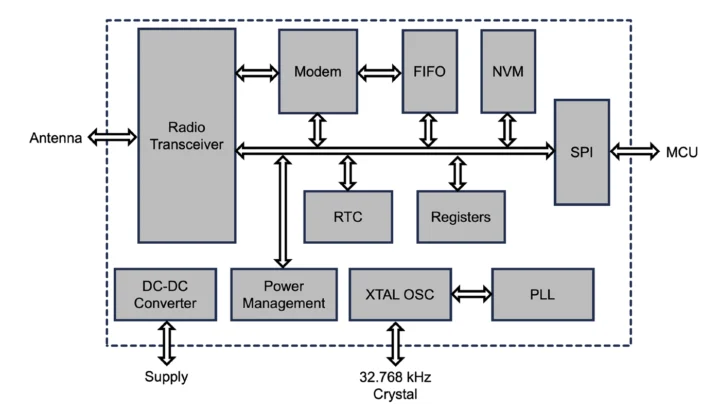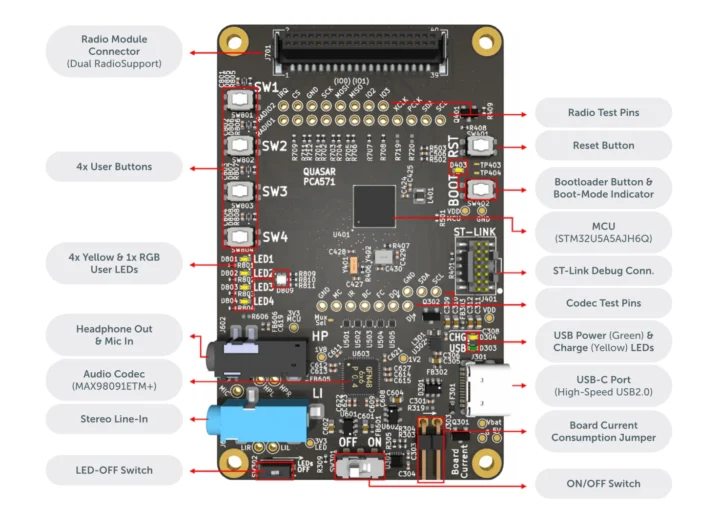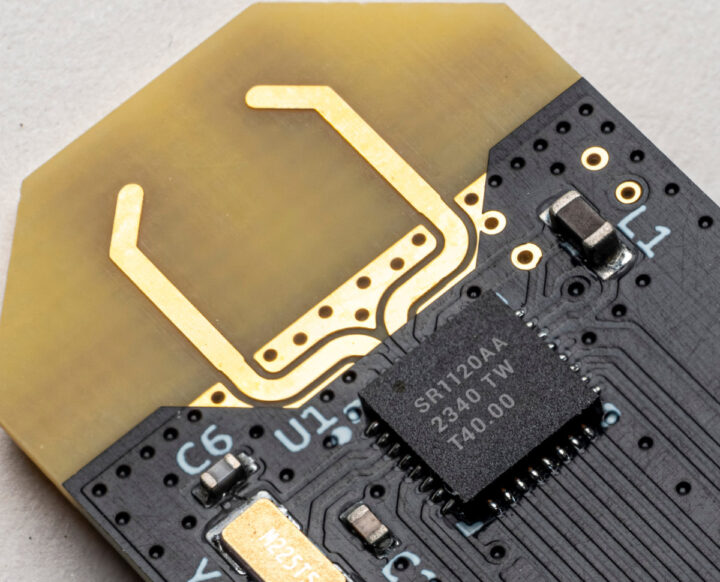SPARK Microsystems SR1120 is the company’s second-generation ultra-wideband (UWB) wireless transceiver capable of up to 41 Mbps throughput at ultra-low power and up to 100 times lower power ranging than UWB competitors.
The Canadian company also highlights the outperformance of their UWB solution over Bluetooth with the new SR1120 offering 40 times higher data rates than Bluetooth chips, while consuming 25 times less power than Bluetooth and offering 60 times lower latency. However, readers should note that Bluetooth LE is supposed to support up to 2 Mbps, so it should (only) be up to about 20 times faster, and Bluetooth HDT is coming soon with data rates of up to 7.5 Mbps to further narrow the gap.
SPARK SR1120 key features and specifications:
- Compliant with the upcoming IEEE 802.15.4ab low-energy UWB PHY standard
- Dynamically reconfigurable UWB spectrum
- 6.2–9.5 GHz band
- Up to 3 dBm TX power
- RX sensitivity of -81 dBm
- Antenna diversity support
- Configurable Symbol Rate – 20.48 MHz, 27.31 MHz, or 40.96 MHz
- Independent 2kbit TX and 2kbit RX FIFOs
- Coexistence with BLE, WiFi (2.4, 5 & 6 GHz), and Cellular
- Low latency – 25 us airtime for 1 kbit
- Host Interfaces – SPI and QSPI
- Supply Voltage – 1.8 to 3.3 V DC
- Temperature range – -40 to +85°C
- Package – 4×4 mm 32-pin QFN; WLCSP ready

While the company does not provide numbers for the ultra-low power consumption of the chip, they say it’s suitable for energy harvesting applications, besides allowing for a smaller battery or longer battery life. The low latency is especially useful for time-sensitive applications such as headsets, microphones, and HID products. Another highlight is the low-cost BoM with only a 32.768 kHz crystal and a high-efficiency PCB antenna required.
SPARK MicroSystems provides an SDK for the SR1000 and SR1120 series, designed to work with Visual Studio Code (VS Code). It comes with application examples using the SPARK Wireless Core and the SPARK Audio Core, as well as a BSP to try the examples on a devkit.


The SR1120 EVB is comprised of a SPARK transceiver module with the SR1102 and antenna, and the Quasar carrier board with an STM32U5A5 Cortex-M33 microcontroller, a MAX98091 audio codec connected to audio input and output jacks, a USB-C port, an ST-Link debug connector, and a few LEDS and buttons.
The SR1120 UWB wireless transceivers are available today, but no pricing was provided. The SR1120 evaluation kit (EVK) and software development kit (SDK) are also available, but the EVK can’t be easily purchased online, and you have to fill out a form to access it. For reference, the previous generation SR1020 kits are sold for $999 with hardware for Tx and Rx. Check out the product page and press release for more details.
Thanks to TLS for the tip

Jean-Luc started CNX Software in 2010 as a part-time endeavor, before quitting his job as a software engineering manager, and starting to write daily news, and reviews full time later in 2011.
Support CNX Software! Donate via cryptocurrencies, become a Patron on Patreon, or purchase goods on Amazon or Aliexpress





